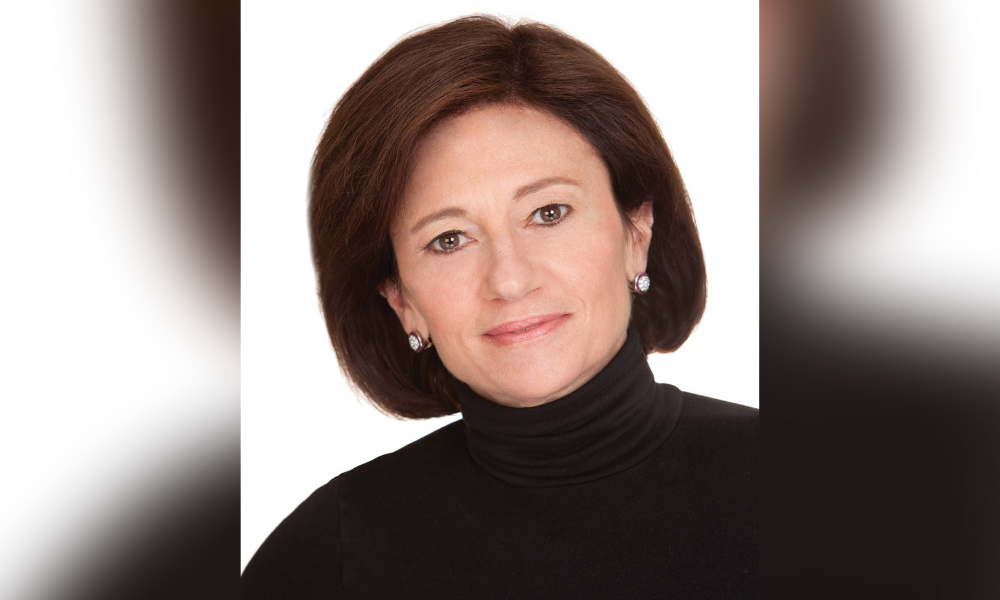Trailblazing mortgage professional dismisses high-rate fears

Young mortgage professionals are complacent and don’t know what it’s like to work in a difficult high-rate environment, a trailblazing mortgage veteran with almost 40 years’ experience in the industry has said.
Melissa Cohn (pictured), one of the country’s first independent brokers after setting up the Manhattan Mortgage Company in 1985, told MPA that when she started in the real estate business she was used to working in far more unfavorable conditions.
“Younger mortgage professionals have never worked in a high-rate environment, never mind a 5% rate environment. I did mortgages when I first started (after leaving college), and I was selling one-year adjustable-rate mortgages at 16%,” she said.
She went on: “We’ve been in this extraordinary long period of very low rates, and there are those who say that we will continue to be in a low-rate environment - perhaps not as low as it is today - but how are they going to function in a higher rate environment? Adversity is something that young mortgage professionals have really never seen.”
Read more: Top originator: Melissa Cohn, a true mortgage trailblazer
Her comments come after the Federal Reserve announced its intention to raise interest rates up to three times next year in a bid to curb soaring inflation, which now stands at 6.8% - the highest level since 1982.
In addition, from mid-January onwards, the Fed will reduce the monthly pace of net asset purchases by $10 billion for agency mortgage-backed securities.
Fed chairman Jerome Powell explained the measures were necessary to achieve “maximum employment and price stability” amid the rise in Omicron cases.
Cohn, now regional vice president at William Raveis Real Estate, Mortgage & Insurance, backed the move, saying higher rates were necessary to stabilize the economy, stressing that unchecked inflation would have serious repercussions for both the economy and the housing sector.
She said: “We need inflation to be tamed, prices need to settle back down. If you can’t afford your food and gas bills, you’re certainly not going to get saddled with a new mortgage.
“And if that means raising rates to get there, I think that’s healthier for the economy as a whole and the real estate market.”
She said the Fed’s revised policy “won’t put a dent in the pockets of people looking to purchase a home within the next few months” but stressed they should act sooner rather than later.
“Mortgage rates should remain range bound around 3% through the end of the year and hopefully through the first two months of 2022,” she added, expecting a 0.25% to a 0.5% increase in mortgage rates over the next couple of months.
However, she didn’t see the Fed’s latest shift negatively affecting the overall real estate market. “[Consumers might have to] go to Starbucks less often, but the real estate market was doing well when rates were at 3.625% and will do so again.”
Read more: New CEO gives low down on real estate deals
Cohn, who is currently the top originator at her company, encouraged would-be homeowners to capitalize on the current low rates, and that even if they waited to apply for a mortgage, they could opt for ARMs, which are set below market rates.
One of her biggest concerns, however, was the Omicron COVID variant and its possible impact on the real estate sector, pointing out that scrapping plans to get workers to return to the office could have a knock-on effect on house buying intentions in big cities, as was the case during the 2020 lockdown.
“If you’re not going to go back to work in your office, do you really want to live in the city? I think that Omicron is an ugly reminder that this pandemic is not going away so quickly, and that we can’t just put it behind us and pretend that it’s gone. We need to be mindful of it,” she said.
Despite this, she cited her long experience in the mortgage industry as an example of how to survive in a hostile market, such as after 9/11 in New York City, when the real estate sector was “nonexistent” for a time.
Today, getting approvals for clients who now had lower incomes as a result of the pandemic posed a new challenge, she said, because they no longer qualified under Fannie/Freddie guidelines.



